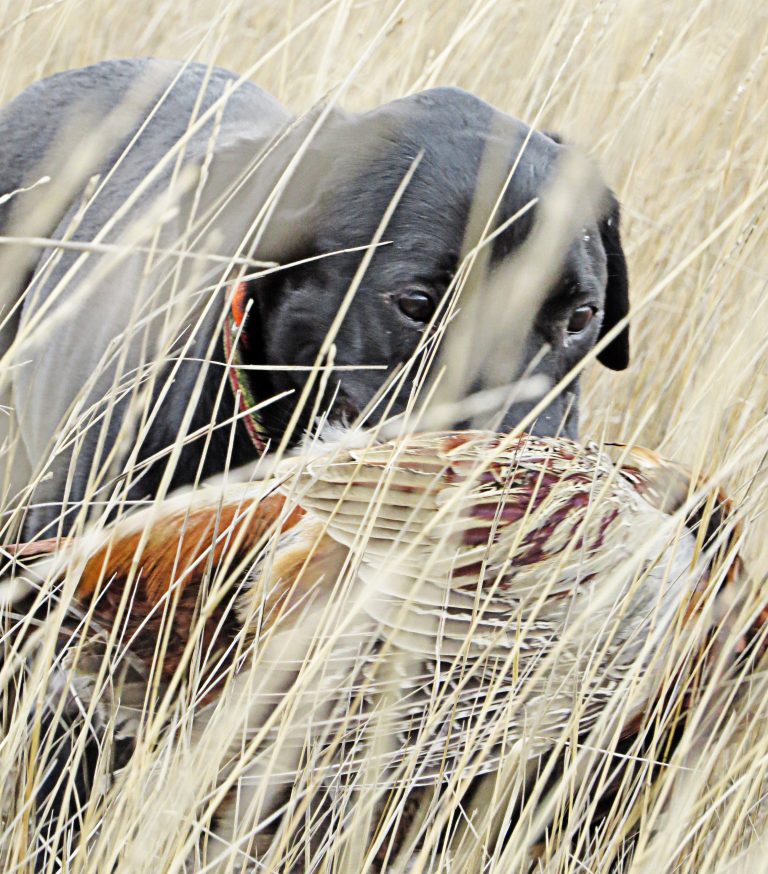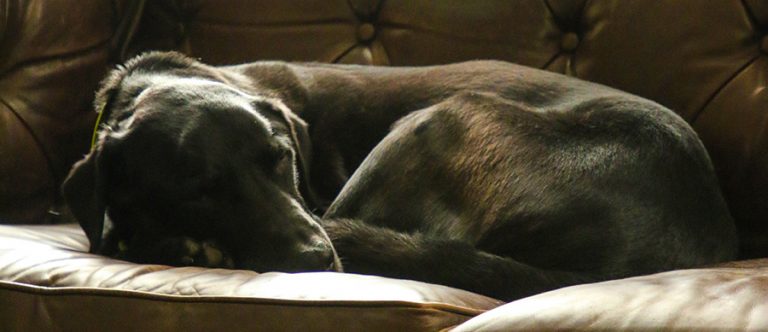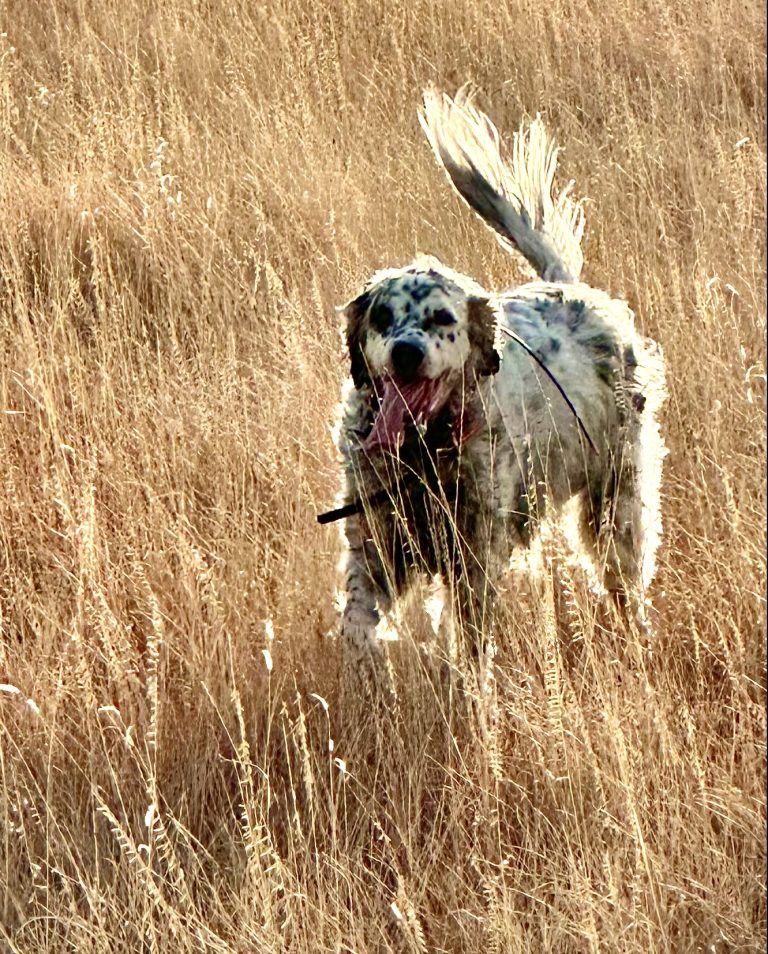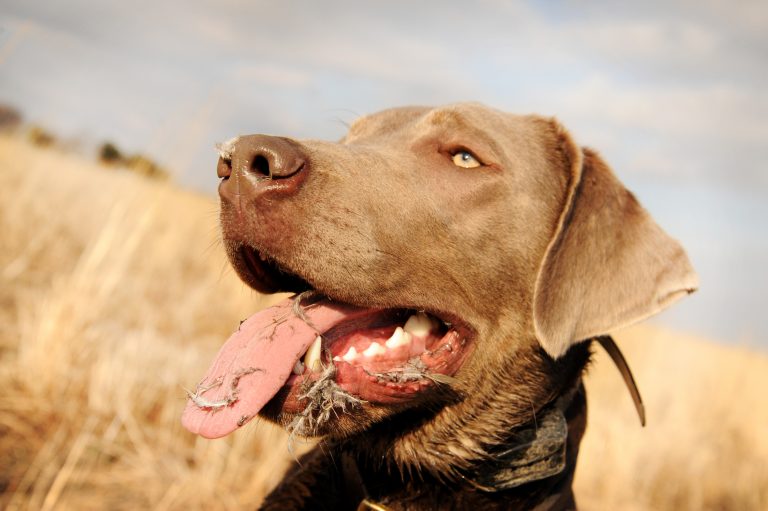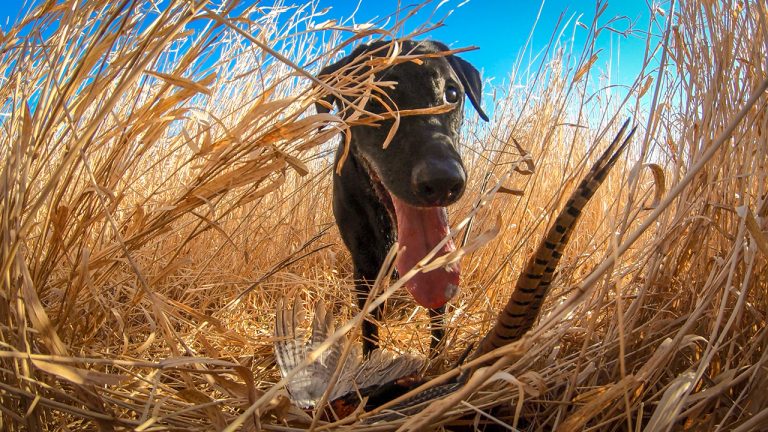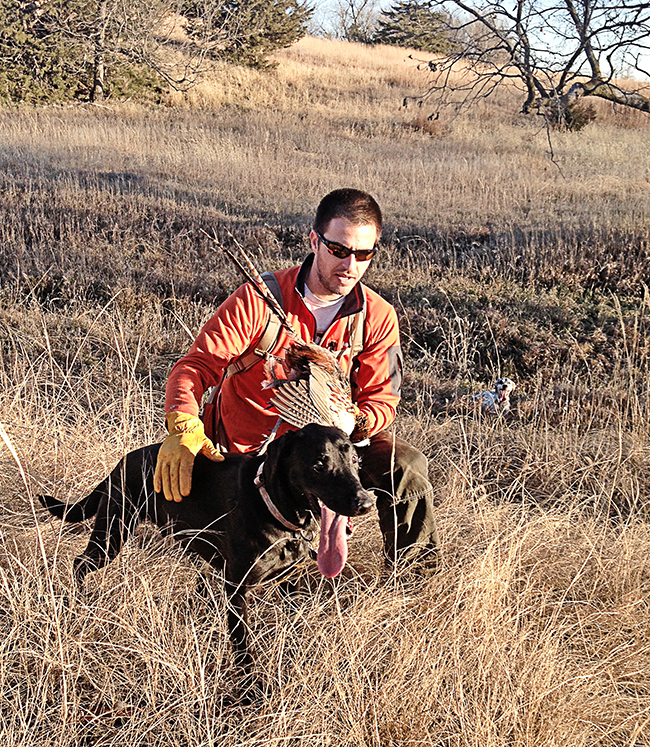Why We Hunt With Dogs
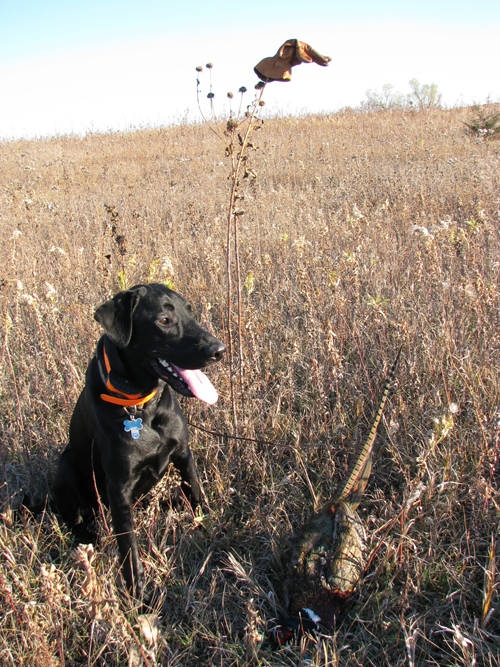
This morning I took my lab Wyatt out for a weekend stomp on public ground. Yesterday while in the field at first light I saw several other trucks with hunters trying to hunt the same field which we beat them to that day.
Needless to say, the public options close to population centers here in Nebraska gets lots of attention. And I think that can get a bit discouraging for some.
But I find it helps to look at this concentration of hunters as a challenge. There are smart birds in these fields that hunters and dogs walk past. I’ve always believed that for every bird you see there are at least two that you never lay eyes on.
We got up and out at first light again because the only public field you can guarantee that has not been hunted in a day is the first one.
Wyatt worked well all morning and we finally were coming to the area I suspected would be holding the birds. Of course one rooster got up long and cackled as it made a safe escape. But out of the corner of my eye, in the opposite direction, I saw another bird flying low and silent. This was the old bird we look for. Smart birds don’t cackle when they take off. This one flew about 100 yards upwind of us into a hillside with light cover. Now that is strange and something I hadn’t seen from many roosters. Normally their policy is the thicker the better.
I got Wyatt headed in the right direction and I figured we had this old bird dead to rights. It was strange that when we made it to the area that I had marked him down, Wyatt picked up some trace but not the typical hot scent of a recent bird. And now I know, that bird flew to light cover because 1) in light cover he wouldn’t drag across nearly the amount of grass and weeds thereby leaving a smaller scent trail and 2) he could run more freely in the light stuff.
We circled around a couple times and though Wyatt was acting birdy, he never indicated that a flush was imminent.
We turned back toward the heavy cover and I wrote off this rooster as smarter than us. I stopped to look around just to speculate exactly to where he had disappeared. And with this pause, five feet to my left the old bird jumped skyward from a small tuft of weeds amongst a hill of ankle-high prairie grass.
A bit startled, I fumbled with the safety and the mount but the shot was true and the bird crashed. Wyatt was only a couple seconds behind for a routine retrieve. But the bird was gone.
I had crushed this pheasant. There was no doubt in my mind that I had hit him with nearly every pellet of the ounce-and-quarter 6s. And yet somehow he had managed to shake it off and strap on his running shoes. Wyatt was on the trail but that bird headed right into some of the thickest, nastiest cover and dry creek bed that we’ve hunted in this state. I put a glove on one of the weeds where the bird hit the ground to mark the spot, then just stood there and listened as Wyatt thrashed through the rough stuff. After about five minutes, the brush busting ceased around 75 yards from my marker glove.
I suspected my little buddy had found the bird and was now just adding a bit of drama. So I shouted for him to bring it up and I beeped his collar a couple times to break the silence. Lo and behold he pushed his way from a brush filled creek bottom with that old super bird in his jaws. I was smiling ear to ear and the folks in the neighboring county could probably hear my praises. A bird that was lost is now destined for pheasant alfredo.
And that’s why I hunt with dogs.

